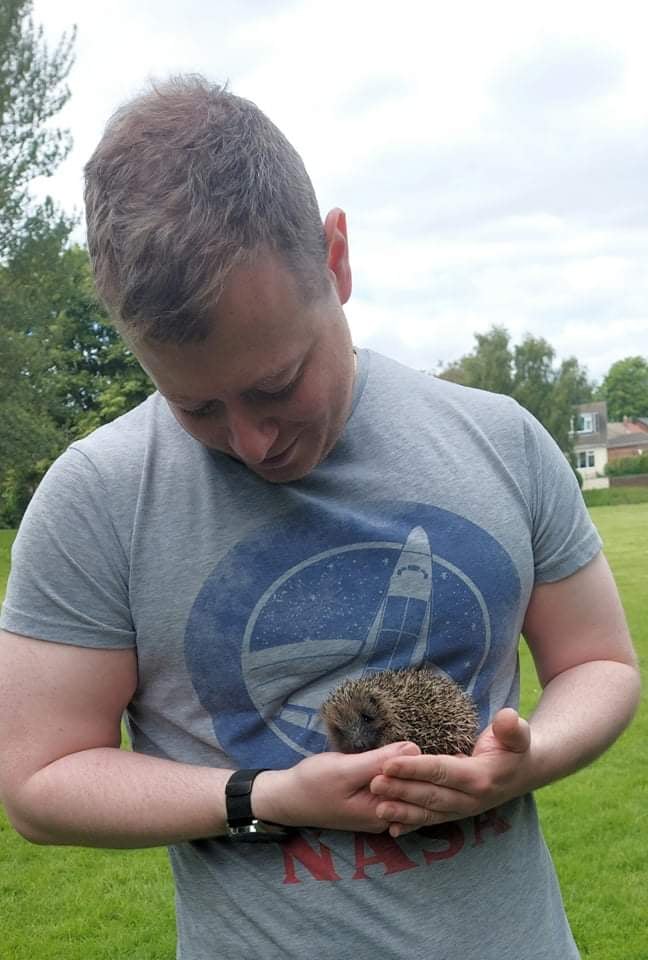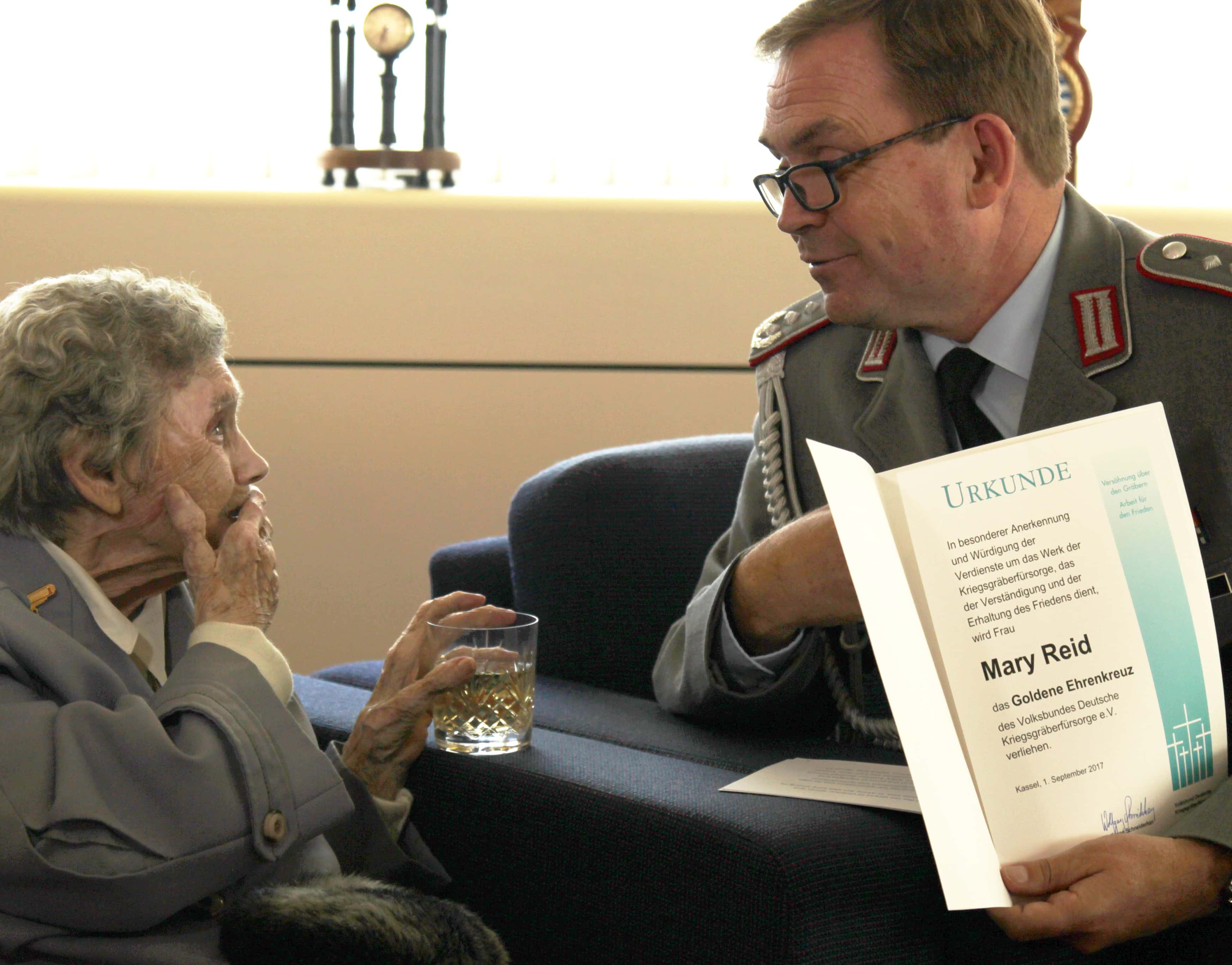
A Sunderland woman who has tended German war graves in the Castletown cemetery for more than six decades has been honoured.
Mary Reid, aged 93, was guest of honour at a ceremony at Sunderland’s Civic Centre – where she was presented with the Gold Cross of Honour from the German War Grave Commission.
Nonagenarian Mrs Reid served in the Royal Ordnance Corps and was also chairwoman of the Castletown section of the Royal British Legion and visited the war graves and memorial in Castletown Cemetery annually for several years.
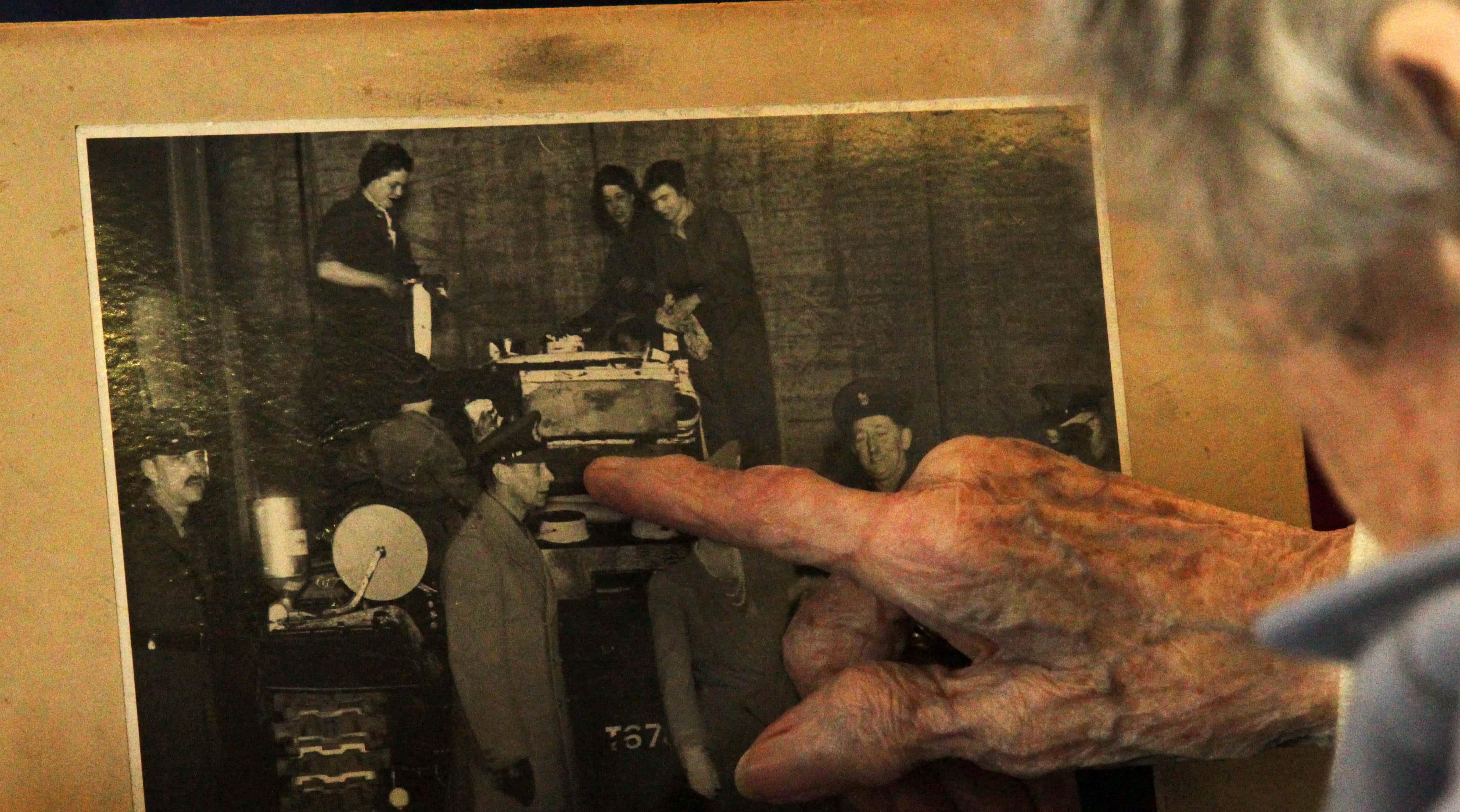
She also received parcels from the families of Dieter Andersen, who died on 15 November 1942, and Josef Wich, who lost his life on 5 September 1940, every year.
The parcels containing wreaths and flowers, were placed onto the two fallen airmen’s graves by Mrs Reid, on behalf of their families.
As a result of her service, the veteran was given an accolade by Colonel Jörg Rütten – a military attaché from the London Embassy of the Federal Republic of Germany.
Col Rütten said: “Mary has cared for the graves of German serviceman she had never known personally. She did a lifetime appointment – I am very proud that I could pass the honour to her.
“It is an honour from the German War Graves Commission. For me as a soldier this is of a very high importance.
“She illustrates to us all the need for reconciliation, peace and above all ‘not forgetting’ and remembrance.”
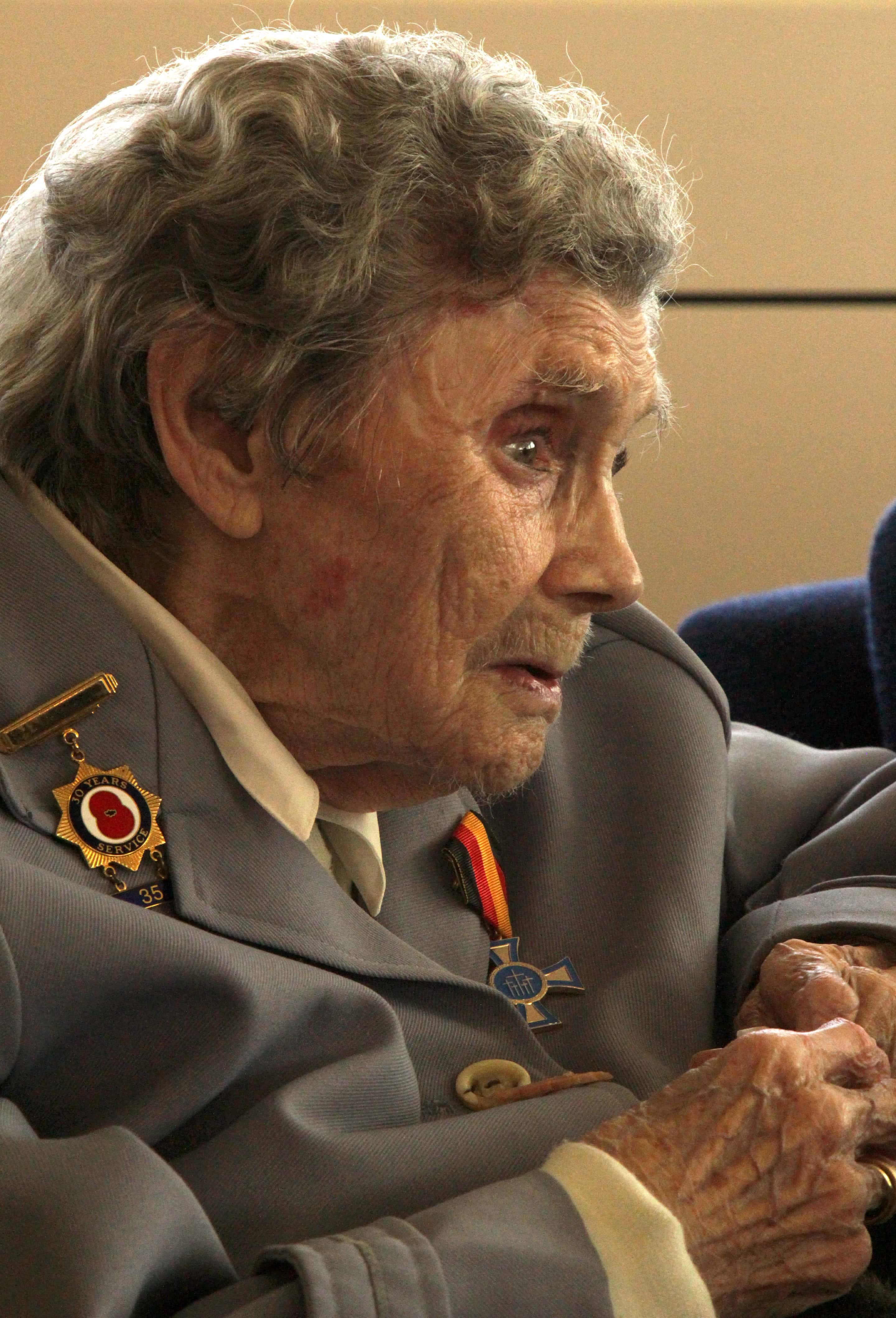
Mary added: “I didn’t expect it. I’m overwhelmed. I was always happy to do it, I served in the forces and my husband was a veteran of Dunkirk who returned safely home to his family so we were among the lucky ones. My husband’s dead [now], he would have been here with me.
“When I was demobbed from the army I joined the Royal British Legion. We met every week and joined branches from across the region every year for the Remembrance Parade, marching behind the Colliery Band through the village to church and then the cemetery to lay crosses on all 90 graves of our fallen comrades.
“The German graves have their own little plot in the same section of the cemetery, and we paid our respects.”
“I’ve never met the relatives of those buried there, but with a family of my own appreciate their loss so have done what I can.
“I’m pleased that the German government have recognised my efforts and those of the whole Castletown community, in remembering all those who lost their lives during the war.”
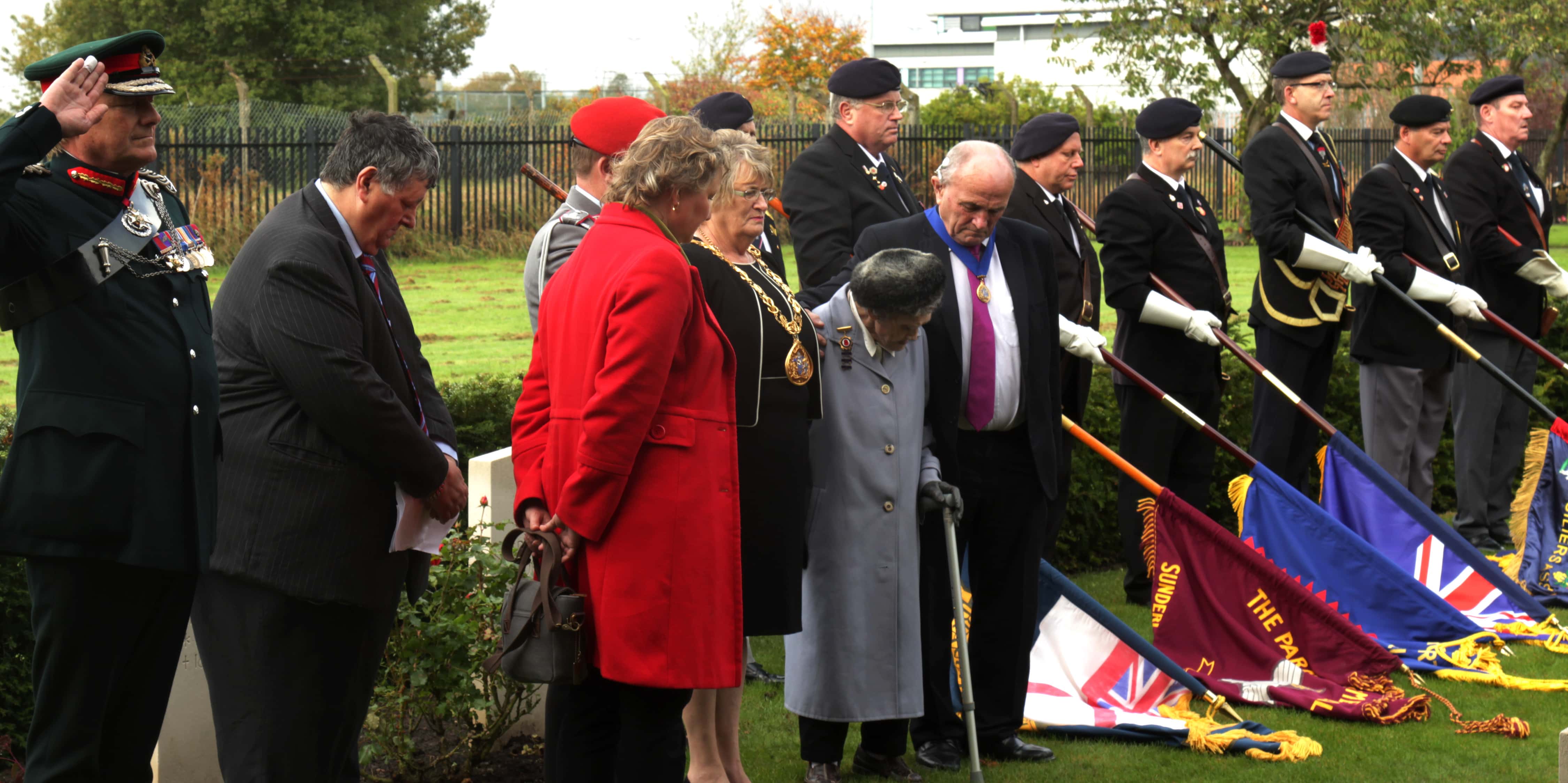
Col Rütten joined the Honorary Consul of the Federal Republic of Germany, Mrs Manuela Wendler, and city delegates including Mayor of Sunderland, councillor Doris MacKnight, in Castletown cemetery for a short commemorative ceremony before the presentation.
Mr Stephen Liverage, a representative from the Commonwealth War Graves Commission, the High Sheriff of Tyne and Wear, Lieutenant General Robin Brims CB, CBE, DSO, DL and members of the Royal British Legion and Veterans Groups were also present at the cemetery ceremony, which was led by local Castletown ward councillors.
Mr Liversage, north of England regional manager for the Commonwealth War Graves Commission said: “It was an honour for me to be there today to see a lady like Mary recognised for her work in the community.
“She has spent so many years as our ‘ears and eyes’ on the ground, making sure our war graves are looked after and I’m proud people like her still do this.”
Cllr. MacKnight added: “It’s a real honour for me to be able to see Mary get the honour of the Gold Cross because Mary is an old friend of mine. I’ve known her for quite a few years now and its my ward so its been quite an emotional day.
“Mary is a credit to us all, her community and the city and it was very good of the German people to honour her in this way.
“This medal presentation is an illustration of the close links between our two communities with Essen a twin city since 1949.”
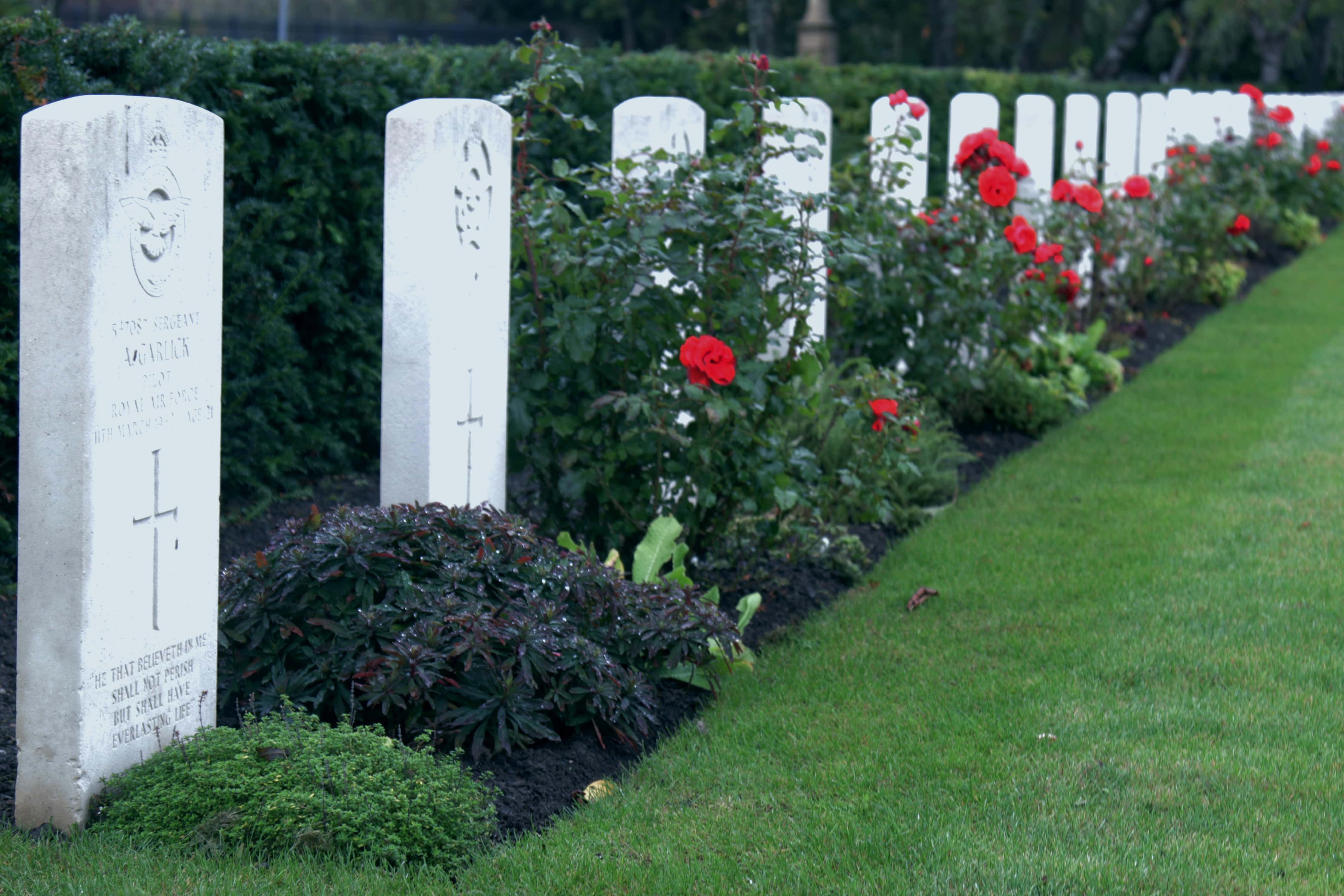
There are ten German war graves at the south-western end of the Castletown cemetery containing the remains of ten aircrew from the Luftwaffe, one unidentified, and a serviceman from the German navy.
The aircrews were from German bombers shot down near Sunderland during Luftwaffe raids and patrols in the Second World War.
The city’s shipyards were regularly targeted as a vital part of the Allied Forces war effort, with hundreds of bombs dropped on Sunderland.
There are 48 war burials in the cemetery in total, which include three British soldiers and 13 servicemen from RAF, nine airmen from the Royal Canadian Airforce, four from the Royal Australian Air Force, one sailor from the Royal New Zealand Navy, an airman from the Royal New Zealand Air Force and six airmen from the Polish Air Force.



